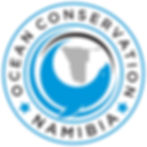
Overfishing
The Global Crisis of Overfishing
Overfishing is one of the greatest threats facing our oceans today. Industrial fleets remove fish faster than they can reproduce. Once-abundant seas are being emptied out. This doesn’t just mean fewer fish on the market: it destabilises entire marine ecosystems. Coral reefs, coastal habitats, and predator populations are all thrown out of balance when fishing pressure becomes unsustainable.
Namibia’s Waters: Rich, But Under Pressure
Namibia’s Benguela Current is one of the most productive marine ecosystems in the world, supplying food to millions of seabirds, seals, and fish species. Its cold, nutrient-rich waters once supported thriving sardine and anchovy fisheries that provided jobs and exports. But decades of heavy exploitation have pushed sardine stocks to near extinction, and other species are following the same path. Industrial fleets continue to fish at levels that are hard to monitor and even harder to enforce. Without urgent change, Namibia’s oceans risk repeating the mistakes seen in other collapsed fisheries worldwide.
From Sardines to Seals and Penguins
Small fish like sardines and anchovies are the foundation of Namibia’s marine food web. When these species collapse, it sends shockwaves through the ecosystem. Cape fur seals, African penguins, and many seabird species depend on these fish for survival, yet overfishing leaves them with little to eat. The African penguin, already endangered, has seen drastic declines linked to the disappearance of sardines from Namibian waters. Protecting forage fish ensures the survival of entire ecosystems.
Jobs at Risk, Not Just Fish
Aquafarming companies and industrial fleets often argue that fishing creates jobs and supports national economies. But when overfishing causes stocks to crash, it destroys far more jobs than it creates. In Namibia, artisanal and small-scale fishers have been hit hardest by the loss of sardines and anchovies, which once sustained coastal communities. Large fleets may profit in the short term, but the long-term cost is borne by local people and future generations. True economic security can only come from sustainable management, not relentless exploitation.
Bycatch: The Hidden Toll
The damage of overfishing goes beyond the species targeted for profit. Industrial fishing methods like trawling and longlining kill vast numbers of unintended victims, known as bycatch. In Namibian waters, seabirds such as albatrosses and petrels are hooked and drowned in fishing gear every year. Dolphins, turtles, and sharks also fall victim to nets designed for other species. These silent losses rarely appear in official catch statistics, but they are devastating to marine biodiversity.
Exporting Wealth
Much of Namibia’s fish does not feed local people, but is exported to wealthy countries. Valuable species like hake are shipped to Europe and Asia, where they fetch high prices in luxury markets. Meanwhile, affordable local fish are diverted into fishmeal and fish oil to feed farmed salmon and shrimp abroad. This leaves Namibians with reduced access to seafood and undermines food security at home. Overfishing here feeds the appetites of rich nations while leaving local communities poorer.
The Urgent Need for Change
Overfishing is not an inevitable consequence of feeding the world. It is the result of poor management, weak enforcement, and short-term profit motives. Namibia has the opportunity to lead by setting sustainable quotas, expanding marine protected areas, and ensuring that local communities benefit from the ocean’s resources. Protecting fish stocks today means securing jobs, food, and healthy ecosystems tomorrow. The future of the Benguela Current depends on bold decisions made now, not later. Without action, overfishing will rob Namibia and the world of one of our greatest natural treasures.
Subscribe to Ocean Conservation's
Monthly Newsletter!
Want to see past editions? Visit our Newsletter Archive
Questions? Visit our Frequently Asked Questions
Want to download our free PDF calendar for 2026? Click HERE
The Ocean Conservation Namibia Trust is a registered charitable trust with the Namibian High Court.
Ocean Conservation Namibia, PO Box 5304, Walvis Bay Namibia
Ocean Conservation International is registered as a non-profit entity under chapter 501(c)(3) in the U.S.
Ocean Conservation International, 8 The Green, STE A, Dover , DE 19901
Contact us: info@ocnamibia.org
Please visit our Frequently Asked Questions for more information on our rescues.
